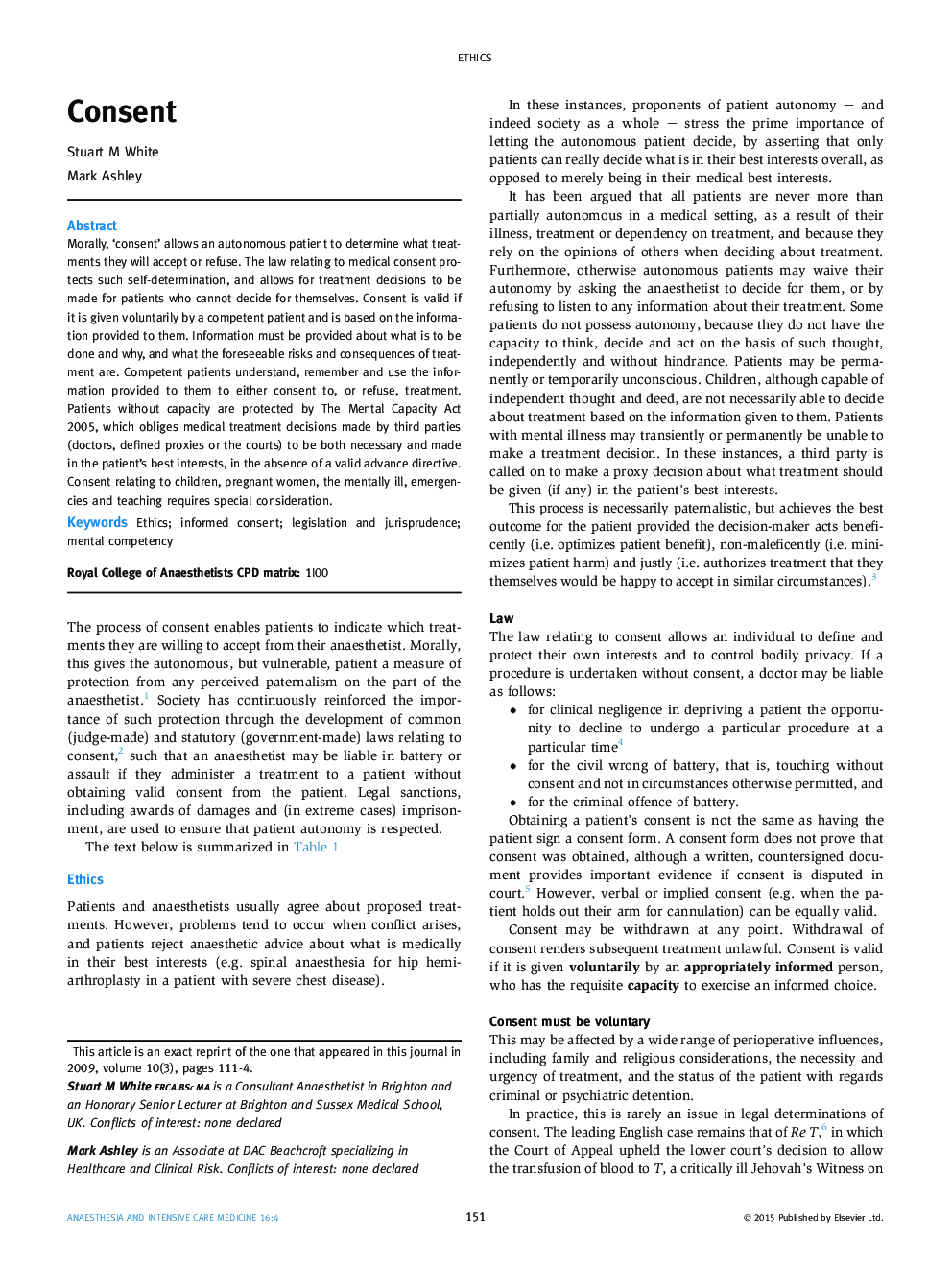| Article ID | Journal | Published Year | Pages | File Type |
|---|---|---|---|---|
| 2742300 | Anaesthesia & Intensive Care Medicine | 2015 | 4 Pages |
Morally, ‘consent’ allows an autonomous patient to determine what treatments they will accept or refuse. The law relating to medical consent protects such self-determination, and allows for treatment decisions to be made for patients who cannot decide for themselves. Consent is valid if it is given voluntarily by a competent patient and is based on the information provided to them. Information must be provided about what is to be done and why, and what the foreseeable risks and consequences of treatment are. Competent patients understand, remember and use the information provided to them to either consent to, or refuse, treatment. Patients without capacity are protected by The Mental Capacity Act 2005, which obliges medical treatment decisions made by third parties (doctors, defined proxies or the courts) to be both necessary and made in the patient’s best interests, in the absence of a valid advance directive. Consent relating to children, pregnant women, the mentally ill, emergencies and teaching requires special consideration.
